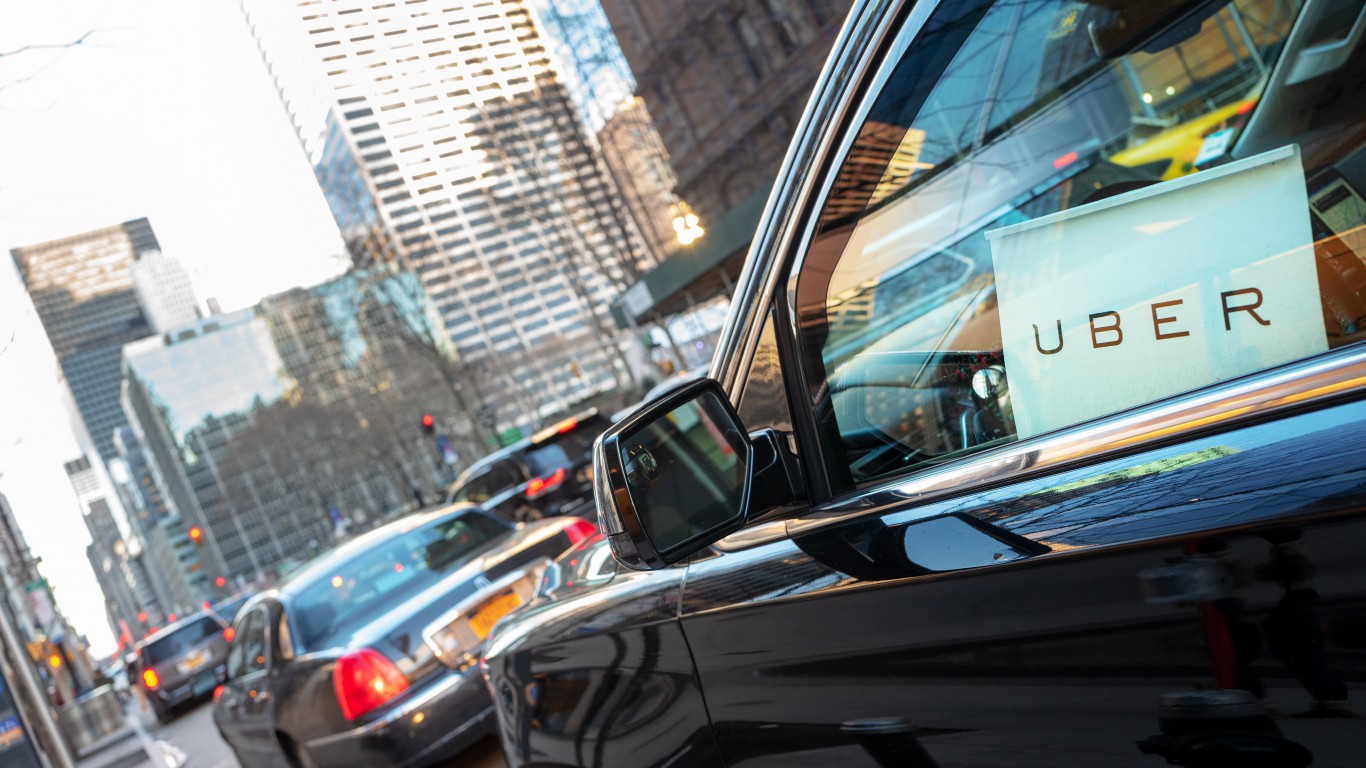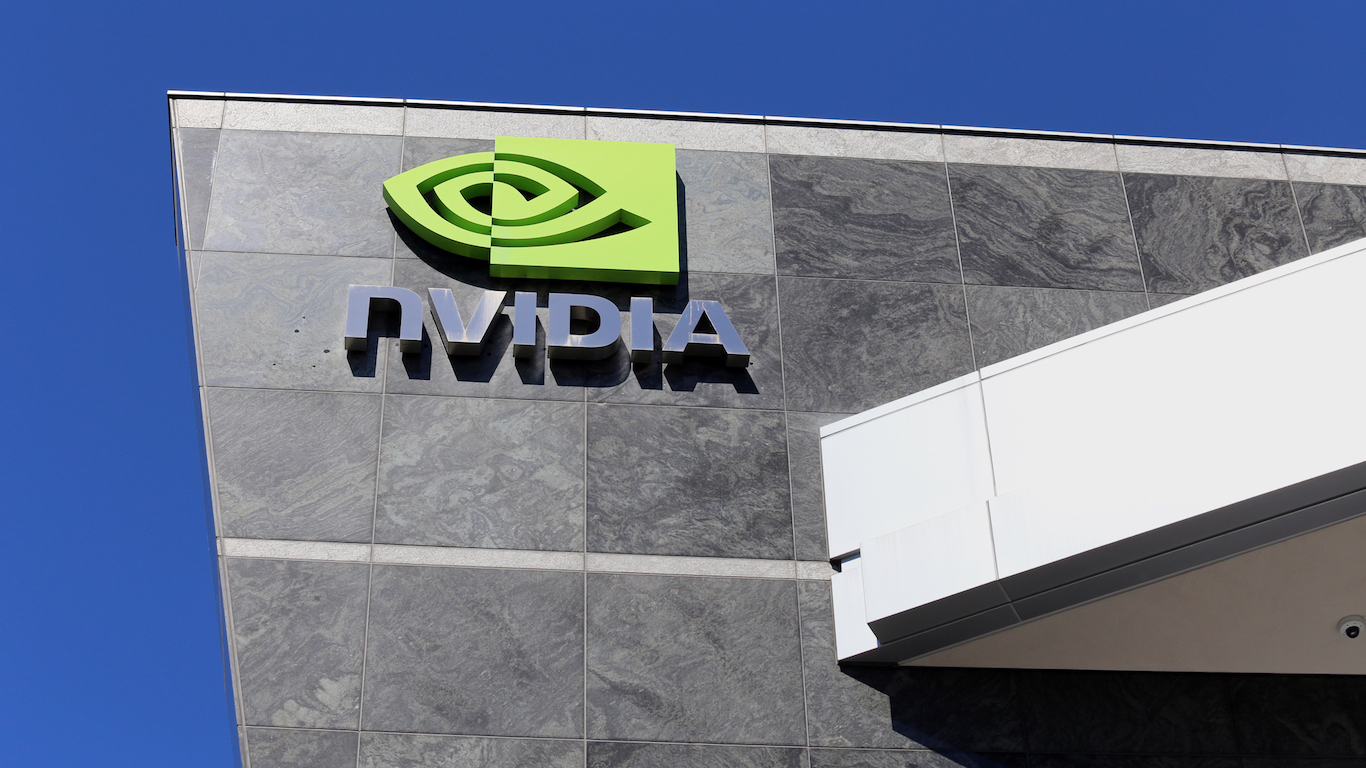
Ride-sharing firm Uber Technologies Inc. (NYSE: UBER) reportedly is holding discussions with a potential buyer for its advanced technologies group (Uber ATG), the one that has been working on its self-driving vehicles. The potential buyer is Aurora Innovation, a venture-funded startup that is led by the former head of Google’s self-driving effort that eventually morphed into Waymo.
Aurora, which was founded in 2017, has raised $700 million funding and expects to begin testing its driverless minivans along commercial routes in the Dallas-Fort Worth region. Self-driving semis are planned for future testing.
Uber acquired self-driving semi company Otto in 2016 and closed down development on the trucks two years later. Waymo, now a subsidiary of Alphabet Inc. (NASDAQ: GOOGL), sued Uber for patent infringement and theft of trade secrets by former Waymo engineer Anthony Levandowski. The lawsuit was later settled out of court in a deal that landed Waymo about $245 million in Uber pre-IPO equity.
In November 2019, the National Transportation Safety Board (NTSB) issued a report on a March 2018 incident in which an Uber autonomous vehicle in Phoenix killed a pedestrian. Among the NTSB’s findings was this one: “The NTSB concludes that the Uber ATG did not adequately manage the anticipated safety risk of its [automated driving system’s] functional limitations, including the system’s inability in this crash to correctly classify and predict the path of the pedestrian crossing the road midblock.”
Further, according to the NTSB, “[T]he Uber ATG’s inadequate safety culture created conditions—including inadequate oversight of vehicle operators—that contributed to the circumstances of the crash and specifically to the vehicle operator’s extended distraction during the crash trip.”
The COVID-19 pandemic has pushed Uber’s traditional ride-sharing business into the background and, had it not been for the company’s Uber Eats delivery service, the company’s results would have been much worse. Uber’s $2.65 billion acquisition of delivery service Postmates is expected to close this quarter.
Uber just wrapped up a campaign that cost the company $57.3 million in cash and in-kind contributions to maintain its ability to treat its California drivers as independent contractors rather than regular, full-time employees. Now the company wants to focus on preventing a Biden administration from issuing a federal rule overturning the costly victory in California or, if forced, to seek similar legislation in more states to protect its business model.
In other words, it’s time for Uber to stick to its knitting and hive off a business that may be a big winner, but not for years to come. The company reportedly paid $680 million in stock for Otto in 2016, but when Uber ATG fired Levandowski, none of Levandowski’s stock options were reportedly vested. Between that and other performance contingencies, Uber may have paid as little as $220 million for Otto, according to a report for CNBC.
In a Form S-1 filed in April of last year, Uber reported spending $457 million on Uber ATG and “other technology programs,” roughly a third of its total R&D spending in fiscal year 2018. Spending in the first nine months of last year totaled $369 million and spending for the current year to date totals $303 million.
Uber raised $1 billion for the ATG unit in July from a preferred stock sale of 14.3% of its Apparate subsidiary to Toyota, SoftBank and Denso. Apparate was the shell company Uber set up to acquire Otto. Uber retains ownership of the remaining 85.7% of Uber ATG.
Somehow it seems a little unlikely that Aurora Innovation can come up with some $6 billion or $7 billion to acquire Uber ATG. Of course, it could negotiate some sort of deal with the minority owners that would reduce the amount of cash Aurora would have to cough up in exchange for equity.
Investors are just happy to hear that Uber is trying to get rid of another cash sink. Midday, Uber’s shares trade up 3.6% at $49.33, after posting a new 52-week high of $50.00 Monday morning. The 52-week low is $13.71, and the consensus 12-month price target is $47.65.
100 Million Americans Are Missing This Crucial Retirement Tool
The thought of burdening your family with a financial disaster is most Americans’ nightmare. However, recent studies show that over 100 million Americans still don’t have proper life insurance in the event they pass away.
Life insurance can bring peace of mind – ensuring your loved ones are safeguarded against unforeseen expenses and debts. With premiums often lower than expected and a variety of plans tailored to different life stages and health conditions, securing a policy is more accessible than ever.
A quick, no-obligation quote can provide valuable insight into what’s available and what might best suit your family’s needs. Life insurance is a simple step you can take today to help secure peace of mind for your loved ones tomorrow.
Click here to learn how to get a quote in just a few minutes.
Thank you for reading! Have some feedback for us?
Contact the 24/7 Wall St. editorial team.
 24/7 Wall St.
24/7 Wall St.



